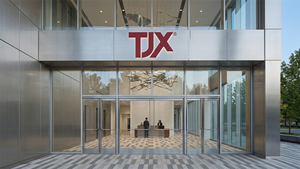
In a grim discovery that has sent ripples of shock and unease through the global cryptocurrency community, Russian crypto millionaire Roman Novak (38) and his wife Anna (37) were found murdered in the Dubai desert in October 2025. Their dismembered bodies were reportedly discovered weeks after they were last seen on October 2, 2025, heading to a meeting with "investors" in Hatta, a mountain resort area near Dubai. The tragic incident, which authorities suspect was a kidnapping and failed ransom attempt targeting their digital assets, casts a stark light on the extreme risks associated with immense wealth in the largely unregulated crypto ecosystem.
The immediate reaction within the crypto sphere has been a complex mix of horror over the brutal crime and a more nuanced, often critical, discussion surrounding Roman Novak's controversial past. Widely identified as a "crypto fraudster" and "scammer," Novak had a history of dubious investment schemes, notably the "Fintopio" app, through which he allegedly amassed hundreds of millions of dollars from unsuspecting investors. This high-profile murder not only highlights the dark underbelly of the crypto world but also raises urgent questions about personal security for high-net-worth individuals in the space, the ongoing battle against illicit finance, and the ethical responsibilities of those operating within this rapidly evolving industry.
Market Impact and Price Action
While the tragic demise of Roman Novak and his wife has undoubtedly created a chilling atmosphere within the crypto community, its direct impact on broader market price action has been largely qualitative rather than quantitative. Unlike events such as major exchange hacks or significant regulatory shifts that can trigger widespread sell-offs or rallies, this incident is unlikely to cause specific price movements in established cryptocurrencies like Bitcoin or Ethereum. Novak's projects, such as "Fintopio," were largely characterized as scams, meaning there isn't a legitimate, widely traded token directly tied to his ventures whose value would plummet.
However, the incident is expected to subtly influence market sentiment, particularly concerning the perceived security and regulatory landscape of crypto hubs like Dubai. The event serves as a grim reminder of the physical risks associated with accumulating and displaying vast, often pseudonymous, crypto wealth. Investors may become more cautious about engaging with lesser-known projects or individuals, increasing their due diligence. This could lead to a flight to quality, with greater investment flowing into more established, regulated assets and platforms, potentially affecting liquidity in more speculative or unregulated corners of the market.
Comparing this event to past incidents, while not directly analogous, reveals a pattern where high-profile negative news, even if isolated, can amplify calls for increased security measures and regulatory oversight. Major hacks or collapses of fraudulent schemes, though different in nature, have historically prompted industry-wide reevaluations of risk management and compliance. This murder, with its clear link to attempts to access crypto assets, will likely intensify discussions around personal operational security for crypto holders and the need for robust legal frameworks to combat crypto-related crime, potentially impacting investor confidence in regions perceived as less secure.
Community and Ecosystem Response
The crypto community's response to the Novak tragedy has been multifaceted, reflecting both genuine sorrow for the loss of life and a critical examination of the victim's contentious past. Social media platforms like Crypto Twitter and Reddit have been abuzz with discussions, initially expressing shock and horror at the brutality of the crime. However, as details of Roman Novak's history as a "crypto fraudster" and his alleged involvement in schemes like "Fintopio" came to light, the sentiment became more complex. Many users condemned the violence but also highlighted the dangers inherent in the unregulated and sometimes morally ambiguous corners of the crypto world.
Crypto influencers and thought leaders have largely used the incident as a stark warning. Discussions have centered on the critical importance of operational security (OpSec) for individuals holding significant crypto wealth, the perils of flaunting lavish lifestyles online, and the ongoing struggle to combat illicit activities within the ecosystem. There have been renewed calls for greater personal vigilance, stronger due diligence when engaging with new projects or individuals, and the need for the industry to collectively address its reputation challenges.
While there are no direct effects on specific legitimate DeFi protocols, NFT projects, or Web3 applications, the broader impact is on the perception of the industry's safety and integrity. The incident serves as a grim reminder that the innovations of Web3 exist within the real world, where physical security and the rule of law remain paramount. The tragedy underscores that while crypto offers unprecedented financial freedom, it also attracts criminal elements, forcing the community to confront the darker implications of unchecked wealth and anonymity.
What's Next for Crypto
The tragic death of Roman Novak and his wife is poised to have both short-term and long-term implications for the crypto market, particularly concerning security, regulation, and the reputation of the industry. In the short term, we can anticipate increased scrutiny from law enforcement agencies, especially in burgeoning crypto hubs like Dubai, which aim to attract digital asset entrepreneurs. This heightened attention will likely focus on combating illicit financial activities, money laundering, and violent crimes linked to cryptocurrency wealth. Authorities may push for greater cooperation from exchanges and service providers to track suspicious transactions and enhance KYC/AML protocols.
In the long term, this incident reinforces the urgent need for a more mature and robust approach to personal and digital asset security within the crypto space. It will likely catalyze further discussions and potentially new initiatives around secure wealth management, physical security protocols for high-net-worth individuals, and the development of advanced tools to protect crypto holdings from both digital and physical threats. The event may also serve as a catalyst for tighter international collaboration on prosecuting cross-border crypto-related crimes.
Strategic considerations for projects and investors will revolve around risk mitigation. Projects aiming for legitimacy and mainstream adoption will likely double down on compliance, transparency, and robust security frameworks to differentiate themselves from the "wild west" image that such incidents perpetuate. Investors, particularly those with significant holdings, will be reminded to exercise extreme caution, prioritize privacy, diversify their holdings, and potentially seek professional advice on personal and digital asset security. Possible scenarios include a continued push towards more regulated environments, potentially making it harder for fraudulent schemes to operate, but also raising concerns among privacy advocates. The likelihood of increased regulatory oversight, particularly in jurisdictions seeking to enhance their image as safe crypto havens, is high.
Bottom Line
The horrific discovery of Roman Novak and his wife in the Dubai desert serves as a chilling and unforgettable cautionary tale for the entire cryptocurrency ecosystem. For crypto investors and enthusiasts, the key takeaway is a stark reminder that the pursuit and accumulation of digital wealth carry significant, multi-faceted risks that extend beyond market volatility to personal safety. The adage "not your keys, not your coin" must now be expanded to include "not your physical security, not your peace of mind." This tragedy underscores the critical importance of operational security, discretion, and stringent due diligence in an industry that, while innovative, remains vulnerable to exploitation by criminal elements.
Assessing its long-term significance, the Novak case will likely be etched into the crypto narrative as a high-profile example of the dangers inherent in the intersection of vast, rapidly acquired wealth and a nascent, often pseudonymous, financial system. It will undoubtedly fuel ongoing debates about the delicate balance between financial innovation, individual privacy, and the imperative for robust legal and security frameworks to protect participants. While such incidents are undeniably negative, they can, paradoxically, serve as catalysts for greater industry maturity, prompting a collective push towards enhanced security measures, improved regulatory clarity, and a stronger ethical foundation.
Moving forward, important dates, events, or metrics to monitor include the progression of the criminal investigation into Novak's murder, any subsequent arrests or trials, and potential policy changes in key crypto jurisdictions like the UAE. Any shifts in regulatory approaches, particularly concerning the tracking of large crypto holdings, KYC/AML requirements for high-net-worth individuals, and international cooperation on crypto-related crime, will be crucial indicators of how the industry adapts to these profound challenges. Ultimately, this tragedy is a somber call for heightened awareness, responsible conduct, and a collective commitment to fostering a safer and more secure environment for all participants in the crypto revolution.
This article is for informational purposes only and does not constitute financial or investment advice. Cryptocurrency investments carry significant risk.





